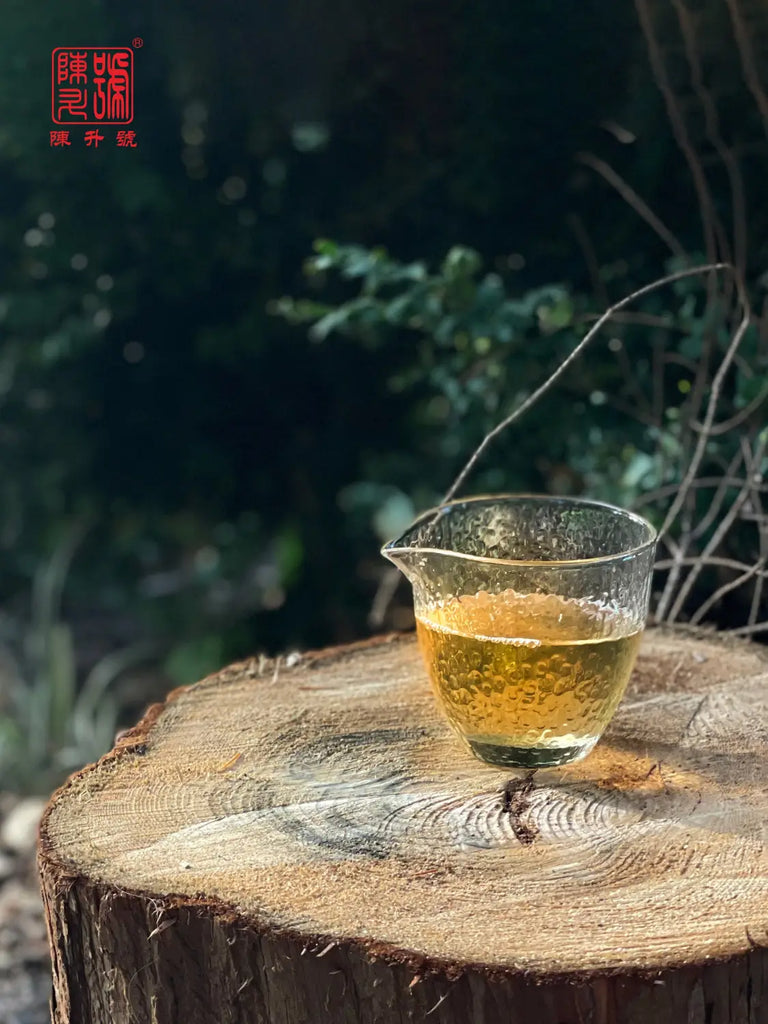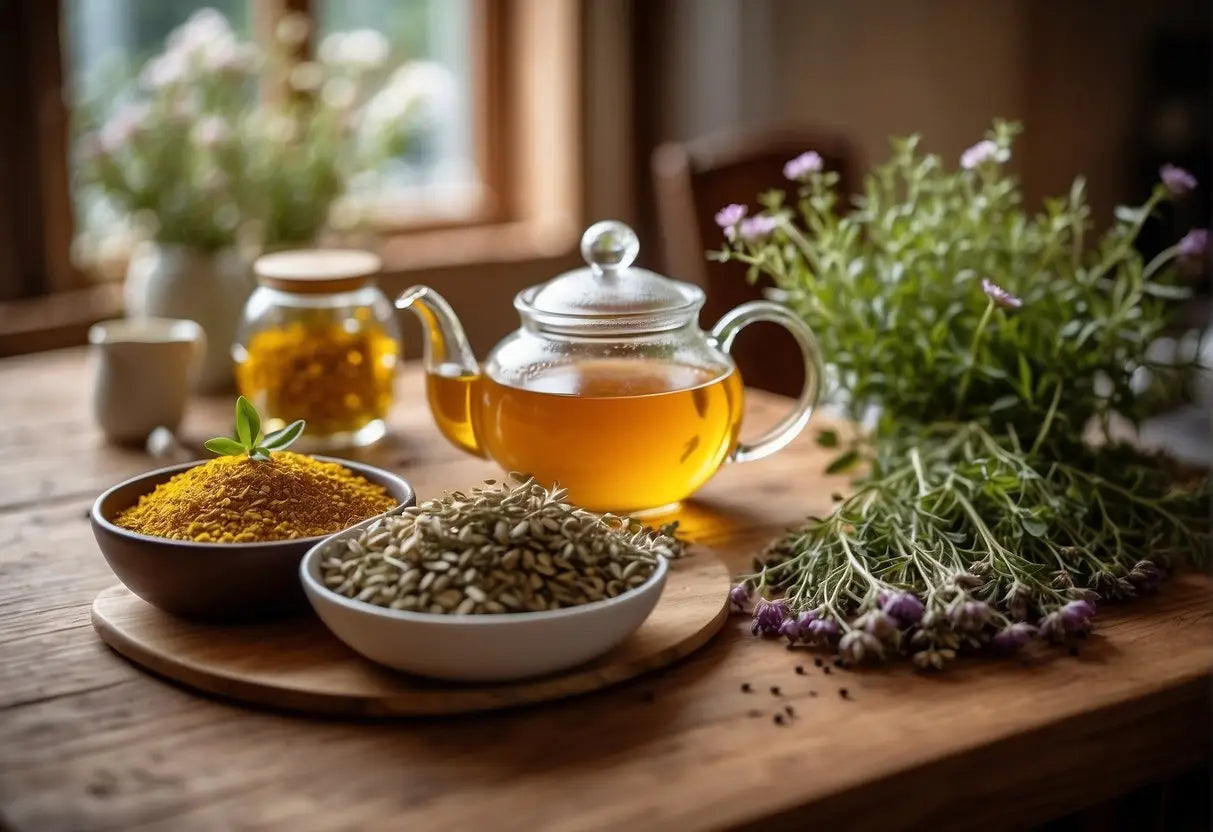What Tea is Good for Allergies
When exploring natural remedies for allergies, you may find that certain teas offer symptomatic relief due to their bioactive compounds.
Anti-Inflammatory Properties
Several teas contain compounds that exhibit anti-inflammatory effects, which can soothe the irritation caused by allergic reactions. For example:
- Green Tea: Catechins present in green tea, especially epigallocatechin gallate (EGCG), can help reduce inflammation.
- Ginger Tea: This tea offers gingerol, a substance known for its anti-inflammatory benefits.
Antioxidant Effects
Antioxidants in tea mitigate oxidative stress, which contributes to allergy symptoms. The significance of these antioxidants includes:
Bestsellers
- Black Tea: Theaflavins, unique to black tea, carry antioxidant properties that fend off oxidative damage.
- White Tea: Has high levels of phenolic compounds that function as antioxidants.
Natural Antihistamine Content
Certain teas have natural antihistamines, which help in reducing the body's histamine response that triggers allergy symptoms:
- Nettle Tea: Contains compounds that may act as natural antihistamines.
- Peppermint Tea: The flavonoid content may inhibit the release of histamines.
Best Teas for Allergies

Certain teas contain properties that may help alleviate allergy symptoms. Below, you will find teas that have been noted for their potential benefits for those suffering from allergies.
Green Tea
Antioxidants in green tea, specifically catechins and EGCG (epigallocatechin gallate), can be beneficial in managing allergic reactions. Studies suggest that EGCG can reduce histamine production and immune response.
Peppermint Tea
Peppermint tea is known for its menthol content, which acts as a natural decongestant, helping to break down mucus. Additionally, it has anti-inflammatory properties that may soothe irritated respiratory pathways.
Ginger Tea
Ginger tea boasts powerful anti-inflammatory effects due to compounds like gingerols. This can help reduce symptoms like nasal swelling and other discomforts associated with allergies.
Nettle Tea
Nettle leaves, when brewed into tea, may help your body manage its histamine response. Their natural antihistamine quality is what may provide you with allergy symptom relief.
Chamomile Tea
Chamomile tea contains flavonoids that can act as antioxidants, possibly reducing inflammation associated with allergic reactions. However, note that chamomile is a known allergen for some individuals and can exacerbate symptoms in these cases.
How to Brew Tea for Allergy Relief
The proper brewing of tea enhances its potential benefits for allergy relief. Paying attention to temperature, steeping time, and frequency ensures you get the most out of your tea.
Brewing Temperature
For most teas beneficial for allergies, such as green tea or peppermint, a temperature range of 160-180°F (71-82°C) is recommended. Herbal teas are best brewed at slightly higher temperatures, around 212°F (100°C). To achieve this:
- Heat water until it reaches the desired temperature.
- A kitchen thermometer can ensure accuracy.
- Do not bring the water to a full boil for green teas, as too high a temperature can destroy the active compounds helpful for alleviating allergy symptoms.
Steeping Time
The time tea leaves are in contact with water affects the potency of the tea. Here's a quick guide:
- Green tea: Steep for 2-3 minutes.
- Herbal teas (like nettle or ginger): Steep for 5-10 minutes.
Longer steeping times can make the tea bitter and less enjoyable while also not increasing the allergy-relieving properties significantly.
Frequency of Consumption
Drinking tea for allergy relief is most effective when done regularly. Follow this schedule:
Lao Ban Zhang
- Drink 1-2 cups daily during allergy season.
- Maintain consistency for the best results.
Remember, moderation is key. Too much tea can lead to side effects like jitteriness or stomach upset.
Additional Ingredients for Allergies

Incorporating specific ingredients into your tea can enhance its effectiveness against allergy symptoms. These additional components have been identified for their potential benefits.
Local Honey
Honey, particularly when it's local, can be beneficial for allergies. By exposing your body to local pollen, you could gradually build immunity. Ideal Use: Add one to two teaspoons of local honey to your tea.
Lemon
Lemon is rich in vitamin C and has anti-inflammatory properties that may aid in reducing allergy symptoms. Lemon Benefits: Detoxifies and enhances immunity. Serving Suggestion: Squeeze half a lemon into your tea.
Turmeric
Turmeric contains curcumin, a compound known for its anti-inflammatory effects. Curcumin Potential: May help in managing inflammation related to allergies. Dosage Note: Stir in a quarter teaspoon of turmeric powder into your tea.
Lifestyle and Allergy Management

Managing allergies requires a holistic approach. Your lifestyle plays a crucial role in how your body responds to allergens. By adjusting your diet, environment, and stress levels, you can mitigate allergy symptoms.
Dietary Considerations
Your diet has a direct impact on your allergy symptoms. Foods that can bolster your immune system and reduce inflammation include:
- Green Tea: Contains natural antihistamines which may reduce allergy symptoms.
- Fatty fish (e.g., salmon, mackerel): Rich in Omega-3 fatty acids, which can help reduce inflammation.
- Fruits and vegetables: High in vitamins and antioxidants, supporting immune function.
Avoid foods and beverages that can irritate your allergies, like alcohol, caffeine, and processed foods high in sugar and unhealthy fats.
Environmental Factors
The environment around you can either aggravate or alleviate your allergies. Consider these strategies:
- Air Quality: Use HEPA filters in your home to trap allergens. Ensure regular maintenance of air filters and vents.
- Humidity: Keep indoor humidity levels between 30% and 50% to prevent mold growth.
- Allergen Reduction: Use dust-mite-proof covers on bedding and wash sheets weekly in hot water.
Stress Reduction
Stress can worsen allergy symptoms by increasing inflammation. To manage stress:
- Regular Exercise: Engages stress-reducing hormones and supports overall health.
- Mindfulness Practices: Techniques such as meditation and deep-breathing exercises can help manage stress levels.
- Adequate Sleep: Ensure 7-9 hours of quality sleep each night to help your body recover and regulate stress hormones.
Frequently Asked Questions
In this section, you'll discover specific teas and their potential benefits to help manage your allergy symptoms, along with homemade tea recipes for additional relief.
Which type of tea can help alleviate sinus allergy symptoms?
Nettle tea is known for its potential to relieve sinus allergy symptoms due to its natural antihistamine properties.
Can ginger tea effectively relieve allergy discomfort?
Yes, ginger tea has anti-inflammatory qualities that can help reduce discomfort from allergies, such as soothing sore throats and lessening congestion.
What are some homemade tea recipes that can soothe allergies?
A homemade tea with a mix of peppermint, nettle, and honey can soothe allergies. Peppermint reduces congestion, nettle acts as an antihistamine, and honey provides a soothing effect.
Does chamomile tea offer benefits for those with allergic reactions?
Chamomile tea may benefit those with allergic reactions due to its antihistamine effects and the ability to soothe skin rashes, though it should be avoided if you have a ragweed allergy.
Are there advantages to drinking green tea when dealing with allergies?
Green tea contains EGCG, an antioxidant that has been found to reduce allergic reactions by inhibiting certain cell receptors involved in allergy responses.
Can black tea consumption improve sneezing and runny nose caused by allergies?
Black tea could potentially improve symptoms like sneezing and a runny nose through its anti-inflammatory and immunomodulating effects.
← Older post Newer post →











